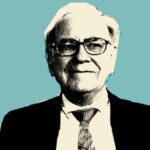Artificial intelligence (AI) has become a powerful tool in various industries, including law. Its ability to analyze vast amounts of data and generate insights has been utilized in legal research, contract analysis, and even predicting case outcomes. However, the use of AI in providing expert testimony in court cases is a relatively new and controversial development.
Recently, a Stanford professor found themselves at the center of a controversy when they were accused of using AI to write expert testimony criticizing the use of deepfake technology in legal proceedings. Deepfakes are highly realistic manipulated videos or images that can be used to deceive or mislead viewers. As deepfake technology advances, concerns about its potential misuse in legal contexts have grown.
The Allegations Against the Stanford Professor
The accusations against the Stanford professor stemmed from a case involving a high-profile lawsuit where deepfake evidence was presented. The professor, known for their expertise in AI and machine learning, was hired as an expert witness to provide testimony on the authenticity of the deepfake evidence. However, it was later alleged that the professor had used AI-generated content to write their expert report, raising questions about the credibility and integrity of their testimony.
The use of AI to generate expert testimony is controversial for several reasons. First, there are concerns about the transparency and accountability of AI-generated content. Unlike human experts who can explain their reasoning and methodology, AI systems operate based on complex algorithms that may be opaque to non-experts. This lack of transparency raises questions about the reliability and accuracy of AI-generated testimony.
Second, the use of AI in expert testimony raises ethical considerations. Experts are expected to provide unbiased and independent opinions based on their expertise and experience. If AI is used to generate expert testimony, there is a risk that the testimony may be influenced by the biases and limitations of the AI system, rather than the objective analysis of a human expert.
The Legal and Ethical Implications
The case involving the Stanford professor highlights the legal and ethical implications of using AI in expert testimony. In legal proceedings, expert witnesses play a crucial role in providing specialized knowledge and opinions to help judges and juries understand complex issues. The credibility and reliability of expert testimony are essential for ensuring fair and just outcomes in court cases.
When AI is used to generate expert testimony, it raises questions about the authenticity and trustworthiness of the testimony. Courts rely on expert witnesses to provide independent and unbiased opinions based on their expertise. If AI-generated content is used in expert testimony, it may undermine the credibility of the testimony and cast doubt on the integrity of the legal process.
From an ethical standpoint, the use of AI in expert testimony raises concerns about accountability and responsibility. Who is ultimately responsible for the content generated by AI – the programmer, the user, or the AI system itself? If AI-generated testimony is found to be inaccurate or misleading, who should be held accountable for any consequences that result from its use?
Addressing the Challenges
To address the challenges posed by the use of AI in expert testimony, several measures can be taken. First, courts and legal professionals should establish guidelines and standards for the use of AI in expert testimony. These guidelines should address issues such as transparency, accountability, and ethical considerations to ensure the integrity of the legal process.
Second, legal professionals should receive training and education on the use of AI in legal contexts. Understanding the capabilities and limitations of AI systems can help lawyers and judges make informed decisions about the use of AI-generated content in expert testimony.
Finally, the AI research community should continue to develop tools and techniques for verifying the authenticity and reliability of AI-generated content. Methods such as explainable AI and algorithmic transparency can help improve the trustworthiness of AI systems and ensure that they meet the standards required for use in legal proceedings.
In conclusion, the use of AI in expert testimony presents both opportunities and challenges for the legal profession. While AI has the potential to enhance the efficiency and accuracy of expert testimony, its use also raises concerns about transparency, accountability, and ethics. By addressing these challenges through the development of guidelines, education, and research, the legal profession can harness the benefits of AI while upholding the integrity of the legal system.






